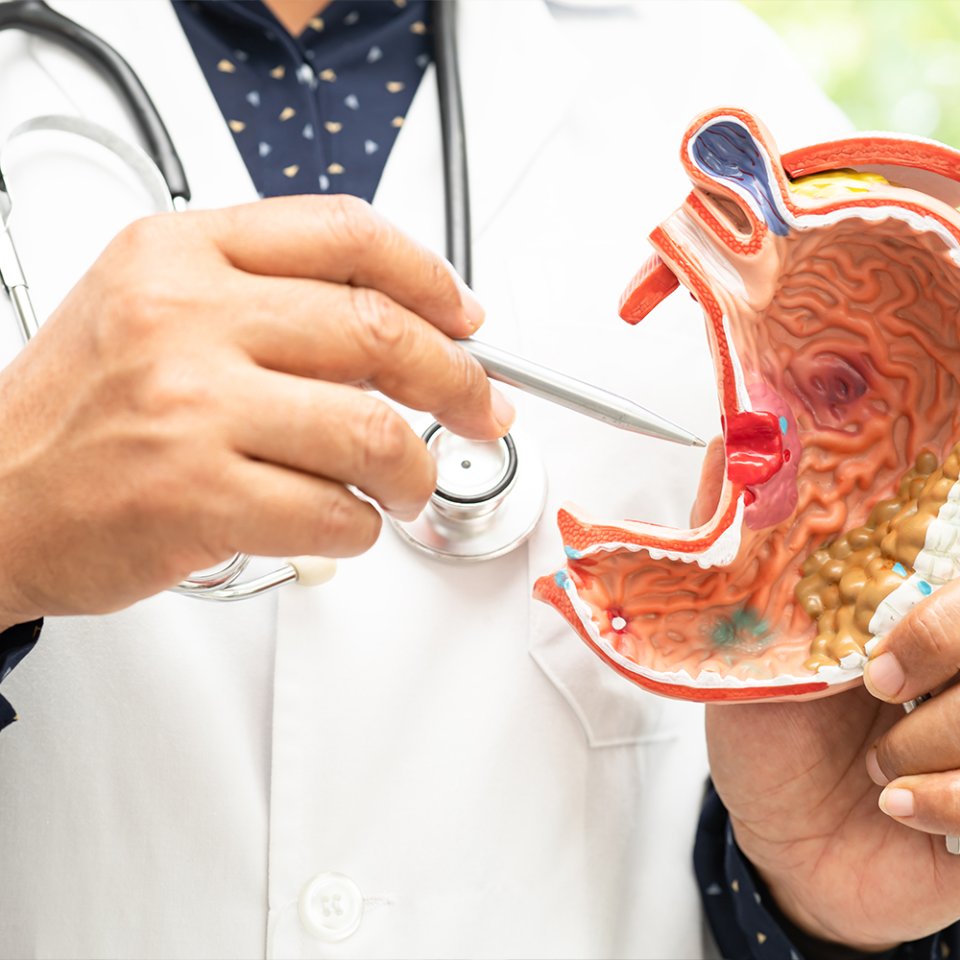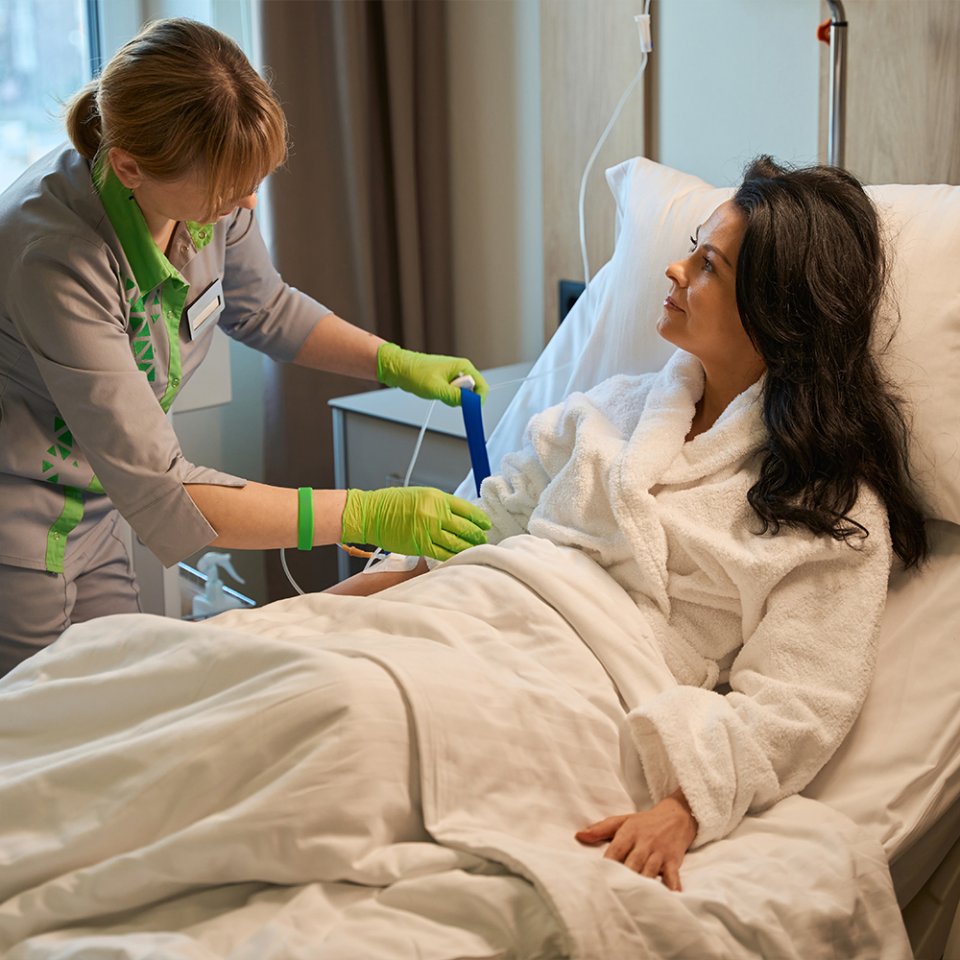What is Stomach Surgery?
Stomach surgery refers to a group of procedures performed on the stomach to treat conditions such as stomach cancer, ulcers, tumors, polyps, obesity, and severe digestive disorders. Depending on the diagnosis, surgery can involve removing part of the stomach (partial gastrectomy), removing the entire stomach (total gastrectomy), or reconstructing the stomach for better function.
Why is Stomach Surgery Needed?
Stomach surgery may be recommended for patients with:
-
Stomach Cancer (early or advanced)
-
Severe or bleeding stomach ulcers
-
Benign or malignant tumors and polyps
-
Obesity (weight loss procedures such as sleeve gastrectomy, gastric bypass)
-
Gastroparesis (delayed stomach emptying)
-
Severe trauma or perforation of the stomach
These surgeries aim to remove disease, relieve pain, restore digestion, and save lives.

Types of Stomach Surgery
At Büyük Anadolu Hospital, our general surgeons offer a wide range of treatments:
Partial Gastrectomy
Partial gastrectomy is a surgical procedure that involves removing a portion of the stomach affected by disease or damage. It is commonly performed to treat stomach cancer, ulcers, or tumors. The remaining part of the stomach is then connected to the small intestine to maintain digestion. The procedure can be performed using open, laparoscopic, or robotic techniques.
Total Gastrectomy
It is the complete removal of the stomach (mostly performed for stomach cancer). In this surgery, the entire stomach is removed and the digestive system is reconstructed. After the operation, the patient continues life with a special diet plan and regular medical follow-up.
Sleeve Gastrectomy
A weight-loss surgery in which about 75–80% of the stomach is removed. The remaining stomach is shaped like a tube or sleeve, allowing patients to feel full with smaller amounts of food. It is commonly performed for obesity treatment while preserving the natural digestive flow.
Gastric Bypass Surgery
A weight-loss procedure that involves reducing the size of the stomach and rerouting a portion of the small intestine. The stomach is turned into a small pouch and connected to the intestines, which limits food intake and nutrient absorption. Besides weight loss, it helps improve conditions such as diabetes, hypertension, and sleep apnea.
Endoscopic or Minimally Invasive Stomach Surgery
This is a modern surgical approach performed without large abdominal incisions. Using a small camera and specialized instruments inserted through tiny openings or natural body passages, surgeons can operate on the stomach with minimal trauma. It offers less pain, faster recovery, and shorter hospital stays. It is often used for treating stomach polyps, tumors, ulcers, or obesity.

How is Stomach Surgery Performed?
Anesthesia: General anesthesia
Duration: 2–5 hours depending on the procedure
Techniques: Open, laparoscopic, or robotic surgery
Hospital Stay: Usually 5–7 days
Recovery Support: Nutritional guidance and regular medical follow-ups
Recovery After Stomach Surgery
Hospital Recovery: 5–10 days
Full Recovery: 4–6 weeks
Dietary Adjustments: Gradual transition from liquid to solid foods
Lifestyle Support: Long-term nutrition and vitamin supplementation for patients with partial or total stomach removal
Overall: Most patients return to normal daily life within 4–8 weeks

Possible Risks & Our Preventive Measures
| Possible Risks | Our Preventive Measures |
|---|---|
| Infection or bleeding | Strict sterilization, preventive antibiotics |
| Nutritional deficiencies | Personalized diet plans & supplements |
| Digestive problems (nausea, reflux) | Careful surgical techniques & dietary guidance |
| Weight loss or fatigue | Continuous follow-ups & recovery support |
| Rare complications (leakage) | Intensive monitoring & early intervention |
Stomach Surgery FAQ
On average, 2–3 weeks, including pre-surgery tests, hospital stay, and initial recovery.
Yes, but you will follow a special diet plan that gradually reintroduces food. Some patients may need long-term supplements.
Not always. Surgery is usually combined with chemotherapy and radiotherapy depending on the stage.
Yes, whenever possible, our surgeons prefer laparoscopic or robotic techniques for faster recovery and smaller scars.
